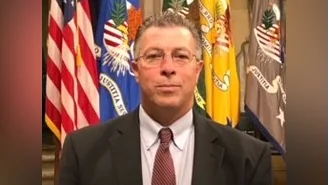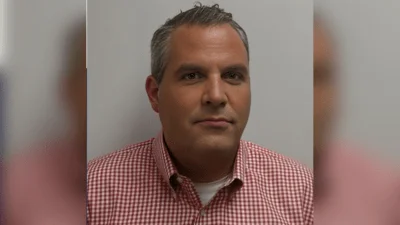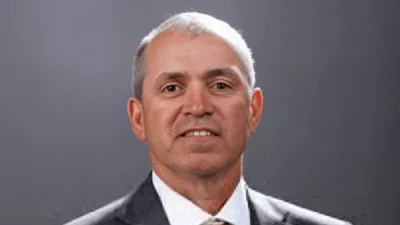The Congressional Record is a unique source of public documentation. It started in 1873, documenting nearly all the major and minor policies being discussed and debated.
“CRIS ALLEN MULTIEMPLOYER PENSION RECAPITALIZATION AND REFORM PLAN” mentioning Chuck Grassley was published in the Senate section on page S1273 on March 5.
Of the 100 senators in 117th Congress, 24 percent were women, and 76 percent were men, according to the Biographical Directory of the United States Congress.
Senators' salaries are historically higher than the median US income.
The publication is reproduced in full below:
CRIS ALLEN MULTIEMPLOYER PENSION RECAPITALIZATION AND REFORM PLAN
Mr. GRASSLEY. Mr. President, the multiemployer pension system has been in need of a major overhaul for years. More than 300 plans are critically underfunded. Moreover, the Pension Benefit Guaranty Corporation, PBGC, multiemployer insurance fund, which is a backstop for these plans, is projected to become insolvent in the next 5 years.
If this occurs, 1.5 million retirees, due to no fault of their own, could see their hard-earned retirement benefits slashed to pennies on the dollar. This is unacceptable, and it is one of the reasons that, when I took over as chairman of the Senate Finance Committee in 2019, I made it a priority to fix the failing multiemployer pension system. To me, this has always meant helping secure the retirement benefits of millions of retirees and ensuring that this retirement system is sustainable over the long term. Working with former Senator and HELP Committee Chairman Lamar Alexander, I immediately got to work on a draft proposal, which was released for public input and stakeholder feedback in November of 2019. We received numerous comments from workers, retirees, unions, employers, actuaries, academics, plan officials, and members of the general public that helped me refine my approach and create a balanced plan.
Yesterday, I reintroduced this version of my plan, which is titled the ``Chris Allen Multiemployer Pension Recapitalization and Reform Act.'' This legislation recognizes that, given the severity of the underfunding issue, some Federal dollars will be necessary to shore up severely troubled plans in the short term. But, this limited assistance must be coupled with structural reforms intended to address the root causes of our current situation. This includes reforms to multiemployer funding rules to ensure plans are adequately capitalized to make good on promises made to plan participants. Furthermore, it would increase PBGC oversight of troubled plans and enhance transparency for plan participants. Critically, it also overhauls the financing of the PBGC multiemployer insurance fund so that it can resume its role as the insurer of last resort for these plans without additional taxpayer funding.
The fundamental tenet of my plan is that all stakeholders have a role in fixing the multiemployer pension system. The American taxpayer shouldn't be expected to simply write a blank check. Stakeholders need to have skin in the game if the system is to be sustainable moving forward.
I understand that this is an extremely complex situation. There is no perfect solution. From the start, I have let it be known I want to work with my Democratic colleagues to find a bipartisan compromise. In June of last year, I came to the floor to plead with my Democratic colleagues to come to the table in hopes we could work toward a bipartisan agreement prior to the end of last Congress. Unfortunately, for months I heard nothing. Then, with only a few weeks left in the 116th Congress, my Democratic colleagues took me up on my offer and negotiations began in earnest. Several weeks of bipartisan negotiations ensued, but there simply was not enough time to iron out all our differences to ensure we had sufficient Member support before the end of the year. However, I found our discussions constructive. They were focused correctly on securing the retirement benefits of participants in the failing plans in the near term, while also ensuring the long-
term sustainability of the multiemployer pension system without a Federal takeover.
I hoped our negotiations would provide a foundation for continuing to work toward a bipartisan solution this Congress. Instead I am disappointed to see that the majority has include an unprecedented $86 billion no-strings bailout of troubled multiemployer pension plans in the reconciliation bill currently before the Senate.
As I have discussed, I recognize that Federal funds will be needed to solve the pension crisis in the short term, but it is equally as important that essential reforms are enacted to ensure the system can be self-sustaining in the long term. Otherwise, taxpayers will be perpetually subsidizing a private sector system of employee-benefit promises. That is exactly what will occur if my Democratic colleagues insist on going forward with the reform-free bailout included in this package. As is, this proposal has been stripped of even the most rudimentary of reforms or accountability measures. In fact, one provision even bars the PBGC from issuing regulations to provide for such measures. As a result, the proposal is likely to breed what economists call ``moral hazard'' as plan managers and sponsors realize that there are no consequences to underfunding and overpromising. In the end, the American taxpayer will be left footing the bill for a private sector retirement system.
I hope my Democratic colleagues will reconsider moving forward with their no-holds-bared bailout. Fundamentally, it does not belong in the current package. The issues plaguing the multiemployer system long predate the pandemic and are not COVID related. But if it is to be included, at a minimum, essential reforms along the lines of what I have proposed must be included. They are essential to protect the American taxpayer and to ensure the long-term sustainability of the multiemployer system.
Toward this end, I intend to offer a motion to commit the reconciliation bill to the Finance Committee with instructions to report it back with critical reforms to ensure multiemployer plans are adequately funded and the PBGC's insurance fund is adequately financed. Without such reforms, the current proposal would set the precedent that the American taxpayer, not the PBGC, is the ultimate guarantor of private-employer pension promises. If this is the case, the burden on the American taxpayer will not be the $86 billion in this package or even hundreds of billions of dollars. It will be limitless.
____________________





 Alerts Sign-up
Alerts Sign-up